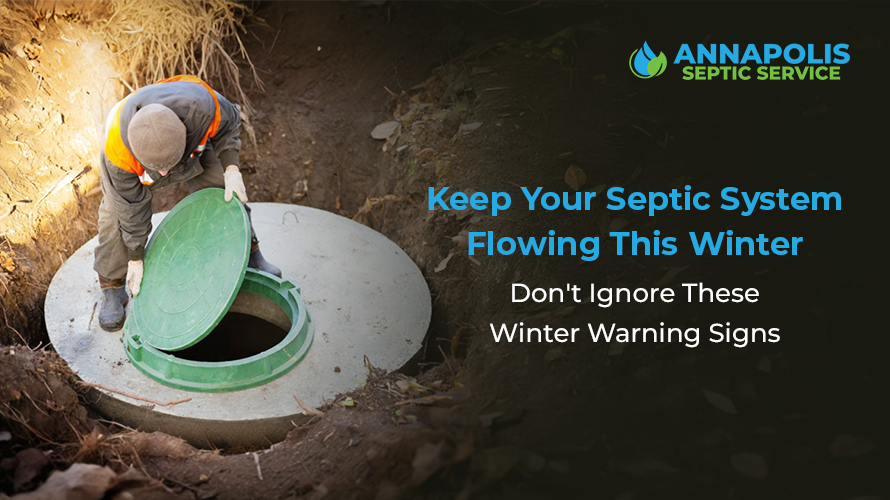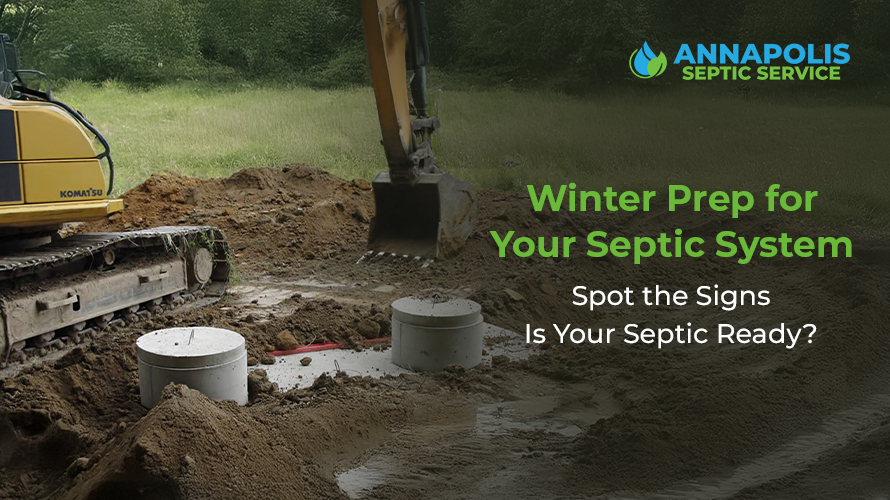Winter can bring harsh conditions that challenge the durability and efficiency of your septic system. Ignoring early signs of trouble before temperatures drop could lead to costly repairs or even septic failure. This post covers the essential warning signs to look for and provides valuable tips to prepare your commercial and residential septic system for winter, ensuring it stays functional and reliable throughout the colder months.
Why Winter Preparation is Crucial for Your Septic System
As temperatures plummet, the components of your septic system are at risk of freezing, which can cause backups, blockages, and even damage to the system. Proper winterization helps protect against issues like frozen pipes, which can disrupt wastewater flow, and frozen septic tanks, which prevent effective treatment of waste. An unprepared septic system can also lead to unexpected and costly repairs when conditions are at their worst.
Key Warning Signs Your Septic System Needs Attention
Here are some of the most common red flags indicating your septic system may not be ready for winter:
1. Slow Draining Fixtures
If sinks, showers, or toilets are draining slower than usual, it could mean your septic system is becoming overloaded or that there’s a blockage in the pipes. Cold weather can exacerbate these issues, making them harder to address once temperatures drop.
- Solution – Schedule a septic system inspection to identify and clear any obstructions.
2. Gurgling Noises
Gurgling sounds in your plumbing system may indicate air bubbles trapped due to buildup or blockage. This can often mean the tank is full, or there’s a blockage that might freeze when temperatures drop.
- Solution – Check for any drainage issues or blockages and consider septic tank pumping before winter.
3. Unpleasant Odors
Odors near your septic tank or drain field often indicate a problem, such as an overflowing tank or clogged pipes. These odors can intensify with colder temperatures as gases struggle to escape properly.
- Solution – Have an expert inspect your septic system for any signs of overloading or leakage.
4. Wet Spots or Pooling Water
Soggy areas around your septic tank or drain field, especially if they appear when the ground is dry, indicate potential leaks or septic overflow. Freezing temperatures can worsen these leaks, leading to system failure.
- Solution – Conduct a septic system inspection and, if necessary, make repairs to prevent further leakage before winter.
5. Backup of Sewage
Sewage backing up into your home is a critical sign that your septic system is either clogged or overburdened. This problem can be particularly disruptive during winter when access to repairs can be limited.
- Solution: If you experience sewage backups, schedule septic tank pumping immediately and consider routine maintenance to avoid future issues.
Essential Steps to Winterize Your Septic System
Once you’ve checked for and addressed any warning signs, here are some proactive steps to winterize your septic system effectively:
1. Insulate the System
Applying a layer of mulch or hay over the tank and piping areas can help insulate the system and prevent freezing. This is especially beneficial in regions where temperatures frequently dip below freezing.
- Tip – Keep an eye on snow coverage, as natural snow provides insulation too. However, do not compact snow or drive over the septic system area.
2. Schedule a Professional Inspection
A septic system inspection by a professional can identify hidden issues before they become severe. Inspectors can check for cracks, leaks, or potential clogs that may worsen during winter.
- Tip – Inspect your system annually, especially before winter, to ensure it’s in optimal condition for the season.
3. Pump the Septic Tank
Routine septic tank pumping can help prevent overflow, which is crucial in winter when ground absorption can be slower. Removing solids ensures your tank has enough room for increased usage during the holiday season when more people may be using the facilities.
- Tip – Pumping every 3-5 years is recommended for most systems, but frequency can vary based on usage.
4. Check for and Repair Leaks
Even minor leaks can freeze and expand, causing significant damage. Conduct a leak inspection before winter to address these issues early.
- Tip – Look for signs of moisture or soft soil around your system; these are often indicators of leaks.
5. Avoid Excessive Water Use
During winter, try to reduce the strain on your septic system by limiting water usage. Stagger laundry loads and fix any leaking fixtures to prevent excess water from entering the tank.
- Tip – Consider installing low-flow fixtures to reduce water consumption year-round.
Additional Tips for Winter Septic Maintenance
-
Use High-Quality Bacteria Treatments
Consider using treatments that encourage bacterial growth in the tank. This can help the system break down waste more effectively, even during colder months when natural bacterial activity may slow down.
-
Redirect Drainage
Ensure that downspouts and other drainage systems are pointed away from the drain field. Excess water from snowmelt can overwhelm your septic system if it drains into the area around the tank.
By staying proactive with these steps, you can ensure that your septic system remains functional, preventing unexpected disruptions and costly repairs during the colder months. Make this winter stress-free by preparing your system in advance and trusting professionals to keep your septic system in optimal condition.

How Annapolis Septic Service Can Help
Annapolis Septic Service offers comprehensive maintenance solutions tailored to keep your commercial and residential septic system in top shape throughout winter. With services across Deale, Annapolis, Bowie, Severna Park, and nearby areas, their team of expert technicians provides essential inspections, pumping, and winterizing repairs to prevent cold-weather issues.
Their services include septic tank pumping, pipe insulation, and field protection strategies to handle freezing conditions effectively. From diagnosing potential issues to implementing winterizing practices, Annapolis Septic Service ensures your system operates smoothly all season long. Don’t let winter challenges disrupt your business operations—rely on Annapolis Septic Service to handle your septic needs and keep everything flowing effortlessly. Get in touch to find out how we can help with preparing your septic system for the winter.

